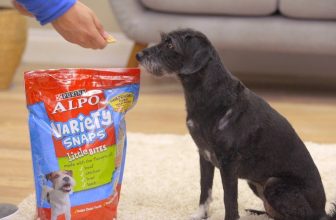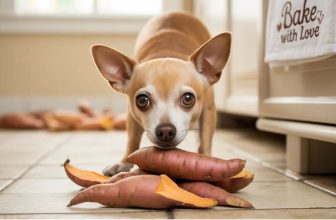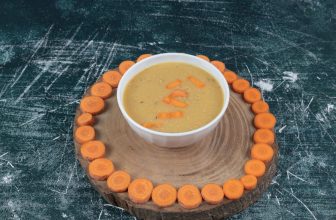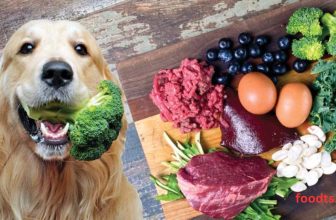Can Cats Have Dog Food? The Best Guide
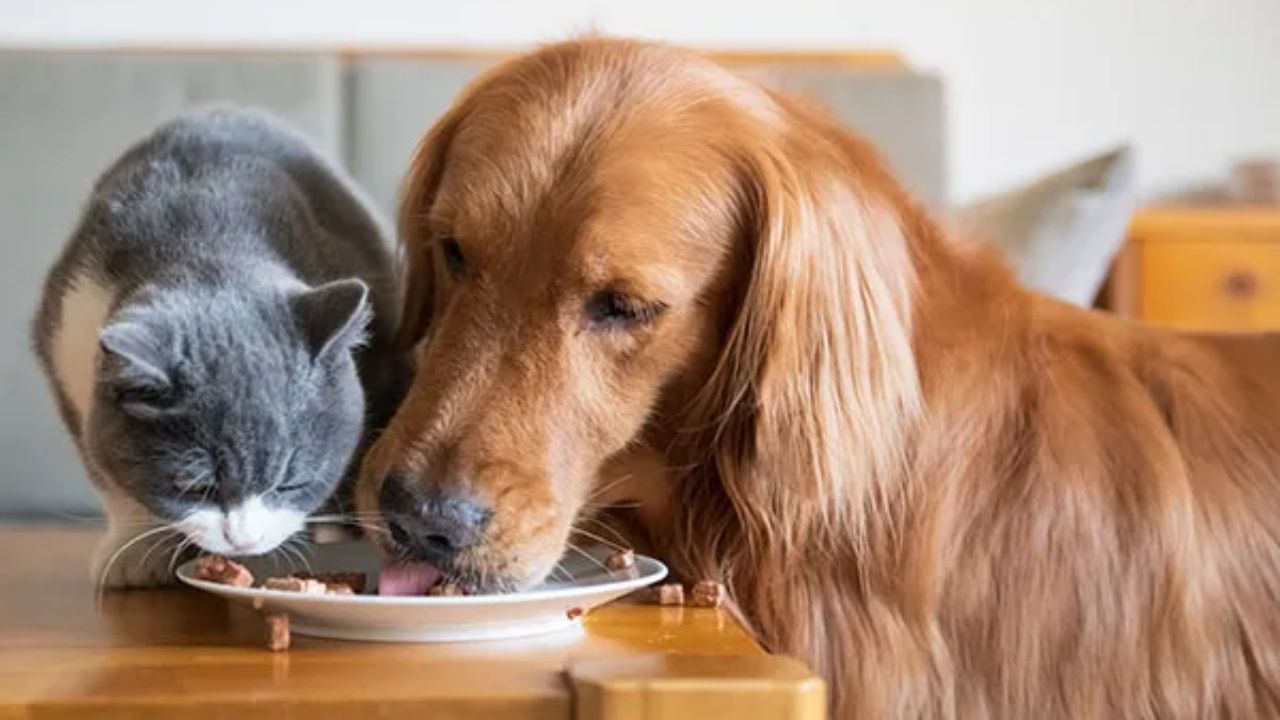
No, cats should not eat dog food regularly. Cats and dogs have different nutritional needs.
Dog food lacks essential nutrients for cats. Many pet owners wonder if it’s safe to feed their cat dog food. While both animals are beloved pets, their dietary needs differ. Cats are obligate carnivores, requiring specific nutrients found only in meat.
Dog food, designed for omnivores, does not provide these vital nutrients. Feeding cats dog food can lead to serious health issues. Understanding the differences in their diets helps ensure your cat stays healthy and happy. In this post, we’ll explore why dog food isn’t suitable for cats and what makes a proper feline diet.
Cats And Dog Food
Introduction paragraph about Can Cats Have Dog Food and Cats and Dog Food… Cats are curious creatures, and sometimes they get into things they shouldn’t. One common question is whether cats can eat dog food. While it might seem harmless, there are important differences between cat and dog food. Understanding these differences is crucial for keeping your feline friend healthy.
Nutritional Differences
Cats and dogs have different dietary needs. Cats are obligate carnivores, which means they need a meat-based diet. Dog food, on the other hand, is designed for omnivores. This difference affects the nutritional content.
Key differences include:
- Protein: Cats need more protein than dogs.
- Taurine: Essential for cats, but not for dogs.
- Fat: Cats require higher fat levels.
- Vitamins: Cats need vitamin A and niacin in their food.
Dog food lacks these important nutrients. Feeding your cat or dog food can lead to deficiencies. Over time, this can cause serious health problems. It’s essential to choose food designed for cats. This ensures they get the right balance of nutrients.
Health Risks
Feeding dog food to cats can cause health issues. One major risk is taurine deficiency. Taurine is crucial for heart and eye health in cats. Dog food doesn’t have enough taurine. This can lead to heart disease and vision problems.
Another risk is the lack of protein. Cats need high protein for muscle and energy. Dog food has less protein, leading to muscle loss and weakness. Cats may also suffer from digestive issues. Dog food has more carbohydrates, which cats can’t process well.
Common health risks include:
- Heart problems due to taurine deficiency
- Vision issues from lack of taurine
- Muscle loss from insufficient protein
- Digestive upset due to high carbs
Dog food is not suitable for cats. Always provide food specifically made for cats to ensure their health and well-being.
Cat Dietary Needs
Cats and dogs have different dietary needs. Cats are obligate carnivores, meaning they need animal-based proteins. Dog food might not meet a cat’s nutritional requirements. Understanding what cats need in their diet helps keep them healthy.
Essential Nutrients
Cats need specific nutrients to stay healthy. These nutrients include:
- Protein: Vital for muscle growth and repair.
- Taurine: An amino acid essential for heart and eye health.
- Vitamins: A, B, E, and D are crucial.
- Minerals: Calcium, phosphorus, and magnesium.
- Fatty acids: Omega-3 and Omega-6 for skin and coat health.
Dog food lacks some of these nutrients. Cats need taurine, which is not in dog food. Feeding dog food to cats can cause health problems. Cats might become weak or sick. It’s important to choose food made for cats.
Protein Requirements
Protein is key for cats. They need more protein than dogs. Protein helps with:
- Muscle development
- Tissue repair
- Immune function
Dog food has less protein than cat food. Cats might not get enough protein from dog food. This can lead to muscle loss and other health issues.
It’s essential to provide high-protein cat food. This ensures they get the protein they need. Cats need food with meat-based proteins. Plant-based proteins are not enough for them.

Can Cats Have Dog Food? Risks & Safe Alternatives %currentyear%
Why Cats Eat Dog Food
Many pet owners wonder if it’s safe for their cats to eat dog food. It’s common to see cats nibbling on dog food occasionally. But why do cats eat dog food? And is it safe for them? Understanding the reasons behind this behavior is important for ensuring our furry friend’s health and happiness.
Taste Preferences
Cats are curious creatures. Sometimes, they find the taste of dog food interesting. While cats have specific dietary needs, dog food can be appealing. Here are some reasons why:
- Smell: Dog food often has a strong aroma. This can attract a cat’s attention.
- Texture: Some cats enjoy the texture of kibble. It might be different from their regular food.
- Flavor: Dog food has different flavors. These new tastes can be exciting for cats.
It’s important to remember that cats are obligate carnivores. This means they need meat to survive. Dog food doesn’t meet all their nutritional needs. While a taste now and then might not harm them, it shouldn’t become a habit.
Availability Issues
In some homes, dog food is more accessible than cat food. This can lead to cats eating dog food out of convenience. Some common reasons include:
- Shared Feeding Areas: In homes with both cats and dogs, their food might be in the same area.
- Free Feeding: If dog food is left out all day, cats might nibble on it.
- Hunger: If a cat is hungry and their food is not available, they might eat dog food instead.
To avoid this, ensure that cat food is always accessible. Separate feeding areas can help. Feeding pets at scheduled times can also prevent this issue. This way, each pet eats the food meant for them, ensuring they get the right nutrients.
Potential Consequences
Cats and dogs are often seen as rivals, yet they share many similarities. But, can cats have dog food? This question might cross your mind, especially if you have both pets. Feeding cats dog food can lead to various potential consequences. It’s crucial to understand the differences between cat and dog nutrition. Let’s dive into the possible effects of feeding your cat dog food.
Short-term Effects
The short-term effects of cats eating dog food may not seem serious at first. But it’s essential to be aware of them:
- Upset stomach: Cats might experience vomiting or diarrhea.
- Lack of essential nutrients: Cats need specific nutrients that dog food lacks.
- Decreased energy levels: They might seem more tired and less playful.
Dog food is not formulated for cats. Their bodies react differently. Cats have higher protein requirements. Dog food often has too many carbohydrates. This imbalance can make them feel unwell quickly.
Long-term Health Issues
Long-term health issues can arise if cats eat dog food regularly. These problems can be severe:
| Health Issue | Description |
|---|---|
| Taurine Deficiency | Cats need taurine for heart and eye health. Dog food doesn’t have enough. |
| Weight Gain | Dog food can cause obesity in cats. It’s higher in calories and carbs. |
| Liver Problems | Too much fat and a lack of protein can harm a cat’s liver. |
Feeding your cat or dog food can lead to serious health issues. A taurine deficiency can cause blindness and heart problems. Obesity can lead to diabetes and joint problems. Liver issues can be life-threatening. It’s vital to feed your cat the right food.
Alternatives To Dog Food
Many cat owners wonder if it is safe for their cats to eat dog food. This question arises when cats share homes with dogs, making it convenient to feed them the same food. Cats and dogs have different dietary needs. Feeding a cat or dog food regularly can lead to health issues. Fortunately, there are alternatives to dog food that ensure your cat gets the right nutrients.
Commercial Cat Food
Commercial cat food is specifically designed for the dietary needs of cats. This type of food ensures that cats get the right balance of proteins, fats, and vitamins. Some key benefits of commercial cat food include:
- High Protein Content: Cats are obligate carnivores. They need a high-protein diet. Most commercial cat foods contain 30-40% protein.
- Essential Nutrients: Vitamins like taurine are crucial for cats. Dog food lacks these essential nutrients. A taurine deficiency can cause severe health problems in cats.
- Balanced Diet: Cat food is balanced in terms of fats and carbohydrates. This balance is important for maintaining a healthy weight and energy level.
There are different types of commercial cat food available:
| Type | Description |
|---|---|
| Dry Food | Crunchy kibbles have a long shelf life and help clean teeth. |
| Wet Food | Moist, higher water content, more palatable for picky eaters. |
| Semi-Moist Food | Soft, chewy texture, often comes in pouches. |
Homemade Options
Some cat owners prefer to make homemade cat food. This can be a good choice if done correctly. Here are some things to keep in mind:
- Use Meat: Cats need meat. Chicken, turkey, and fish are good options.
- Add Supplements: Homemade food should include vitamins and minerals. Taurine, calcium, and vitamin E are essential.
- Avoid Harmful Ingredients: Some foods are toxic to cats. Avoid onions, garlic, chocolate, and grapes.
A simple recipe for homemade cat food:
| Ingredients | Instructions |
|---|---|
| 1 cup cooked chicken | Shred the chicken into small pieces. |
| 1/4 cup cooked rice | Mix with the chicken. |
| 1/4 cup cooked carrots | Mash and mix with the chicken and rice. |
| 1/4 cup chicken broth | Add to the mixture for moisture. |
Ensure the recipe has the right balance of nutrients. Consulting a vet can help in creating a balanced homemade diet.
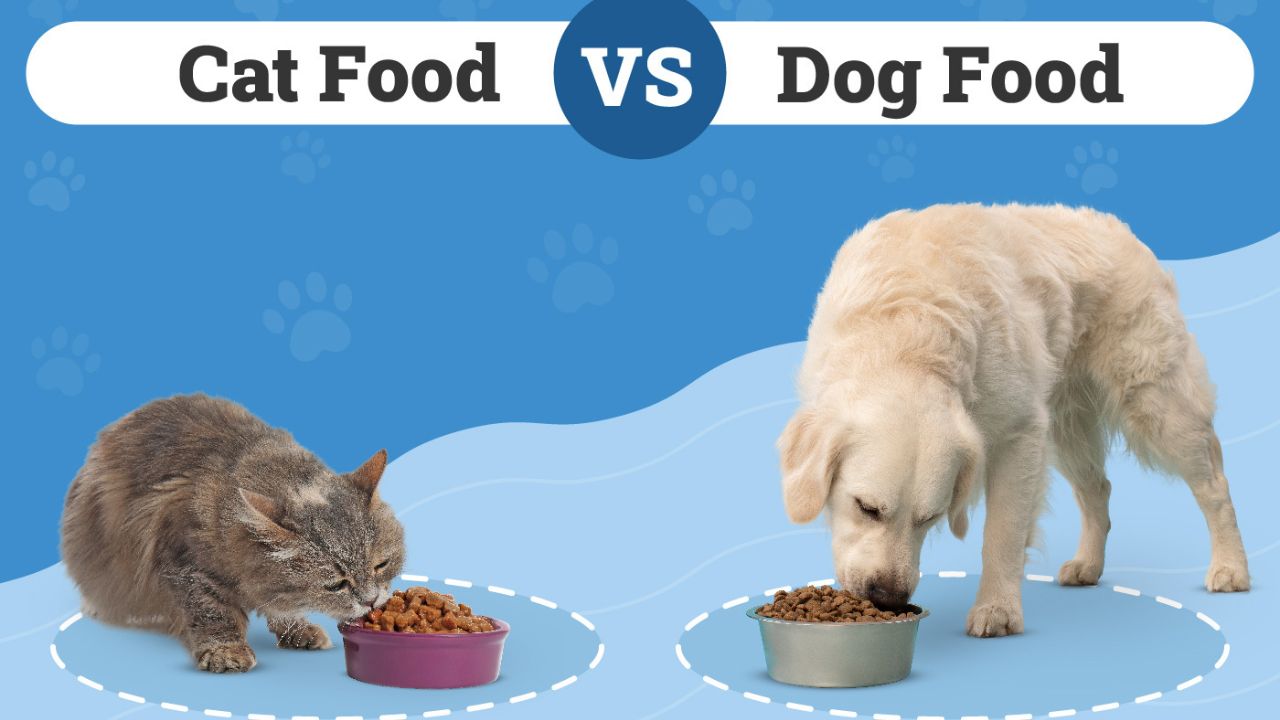
Signs Of Nutritional Deficiency
Cats and dogs have different dietary needs. Cats need specific nutrients that are not in dog food. Feeding cats dog food can lead to serious health issues. Understanding the signs of nutritional deficiency is important. This helps ensure your cat stays healthy.
Behavior Changes
Feeding your cat or dog food can cause behavior changes. These changes might be subtle at first. Over time, they become more noticeable. Here are some common behavior changes:
- Increased lethargy: Your cat might sleep more than usual.
- Irritability: Your cat could become more easily annoyed.
- Reduced playfulness: Your cat might lose interest in toys.
- Increased vocalization: Your cat might meow more than normal.
These behavior changes indicate a lack of essential nutrients. For example, taurine is vital for cats. Dog food does not have enough taurine. A deficiency in taurine can affect your cat’s mood. Monitor your cat’s behavior closely. If you notice these signs, consult a vet immediately.
Physical Symptoms
Physical symptoms are another sign of nutritional deficiency. These symptoms can vary. Some common physical symptoms include:
- Weight loss: Your cat might lose weight unexpectedly.
- Poor coat quality: Fur might become dull and brittle.
- Digestive issues: Your cat might have diarrhea or vomiting.
- Weakness: Your cat might appear weak or unsteady.
These symptoms indicate poor nutrition. Cats require specific nutrients for a healthy body. Dog food lacks these necessary nutrients. For example, vitamin A is crucial for cats. Dog food does not contain enough vitamin A. This can lead to vision problems and skin issues.
If you notice any of these symptoms, take action. A vet can provide advice and help adjust your cat’s diet. Ensuring your cat gets the right food is key to their health.
What To Do If Cat Eats Dog Food
Cats and dogs have different dietary needs. Feeding dog food to cats is not recommended. If a cat eats dog food, it might not get the nutrients it needs. This can lead to health problems. Knowing what to do if this happens is important. Here is some helpful advice.
Immediate Steps
First, check the amount of dog food your cat has eaten. A small amount might not cause harm. But, if your cat ate a lot, you need to act quickly.
Here are some immediate steps to take:
- Remove the dog food from your cat’s reach.
- Offer your cat plenty of water.
- Observe your cat for any unusual behavior or symptoms.
Symptoms to watch for include:
- Vomiting
- Diarrhea
- Lethargy
- Loss of appetite
If you notice any of these symptoms, contact your veterinarian right away.
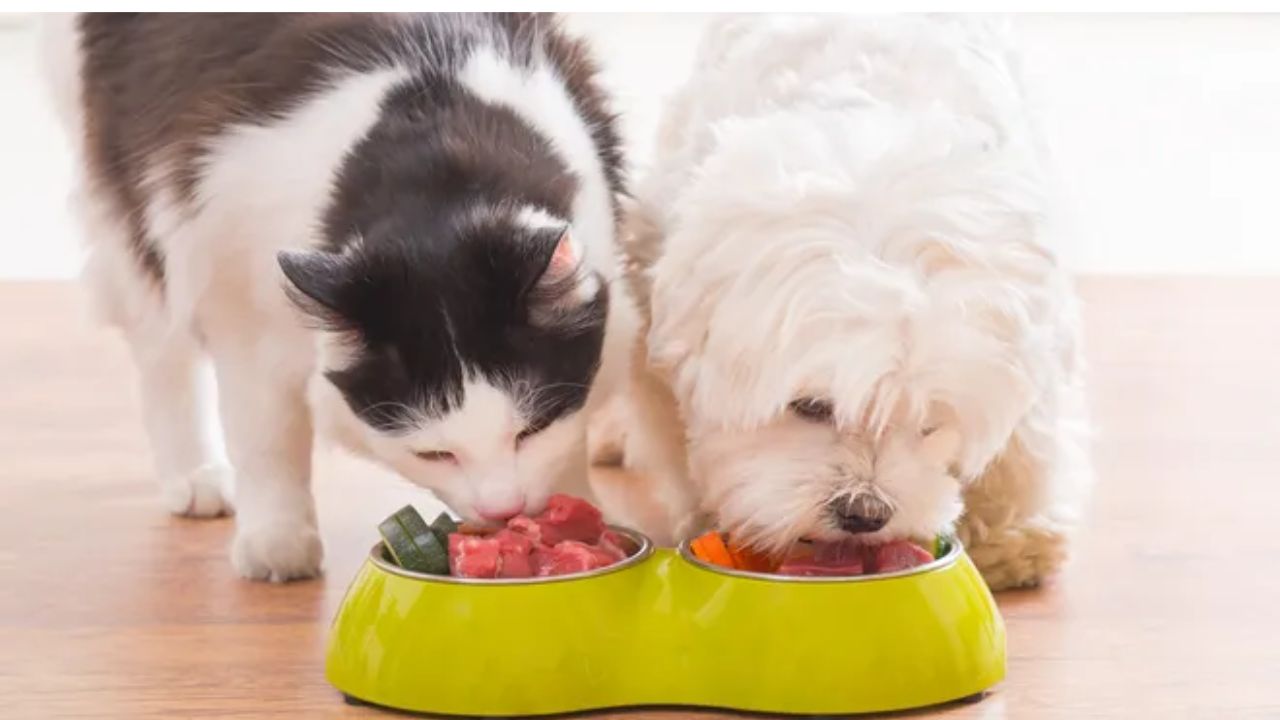
Veterinarian Advice
Always seek advice from a veterinarian if your cat eats dog food. They can provide guidance based on your cat’s health and the amount of dog food consumed. Your vet might ask you to bring your cat in for an examination.
During the visit, the vet may:
- Check your cat’s vital signs
- Conduct blood tests
- Provide medication if necessary
Follow the vet’s instructions carefully. They may recommend a special diet for a few days. This helps ensure your cat gets the right nutrients.
Remember, prevention is key. Keep dog food out of your cat’s reach. Store it in a secure container. Feed your pets separately to avoid any mix-ups.
Best Practices For Feeding
Many cat owners wonder if their feline friends can eat dog food. Cats and dogs have different dietary needs, so it’s important to understand the best practices for feeding them. Feeding your cat the right food is crucial for their health and well-being. This blog post will explore whether cats can have dog food and provide some helpful tips for feeding your cat properly.
Proper Cat Diet
Cats require a diet rich in protein and specific nutrients. They need taurine, arachidonic acid, and vitamin A. These nutrients are essential for their health. Unlike dogs, cats are obligate carnivores. This means they need meat to survive.
A proper cat diet should include:
- High-quality protein sources like chicken, fish, and beef
- Essential fatty acids like omega-3 and omega-6
- Vitamins and minerals such as taurine, vitamin A, and calcium
Commercial cat food is formulated to meet these needs. It’s best to stick with foods designed for cats. Dog food lacks essential nutrients for cats. Feeding dog food to cats can lead to deficiencies and health problems.
Here’s a quick comparison between cat food and dog food:
| Feature | Cat Food | Dog Food |
|---|---|---|
| Protein Content | High | Moderate |
| Taurine | Present | Absent |
| Vitamin A | Present | Absent |
| Arachidonic Acid | Present | Absent |
Preventing Access To Dog Food
To ensure your cat stays healthy, it’s important to prevent access to dog food. Here are some tips to help:
- Feed your pets separately. Create a designated feeding area for each pet.
- Store dog food in a secure location. Use containers with tight lids to keep it out of reach.
- Monitor your pets during feeding times. Make sure your cat does not eat the dog food.
- Remove leftover dog food after feeding. This reduces the chance of your cat sneaking a bite.
Another method is to use pet feeding stations. These are designed to prevent one pet from eating another’s food. Elevated feeding stations can help keep dog food out of a cat’s reach.
Training your pets can also be effective. Teach your dog not to leave food lying around. This helps create a habit of finishing their meal quickly. This reduces the chances of your cat eating dog food.
By following these tips, you can ensure your cat gets the nutrition they need. Keeping dog food away from your cat is vital for their health and well-being.
Frequently Asked Questions: Can Cats Have Dog Food?
Q1: What Can I Feed My Cat If I Don’t Have Cat Food?
A1: You can feed your cat cooked chicken, turkey, or lean beef. Offer plain rice or scrambled eggs. Ensure foods are plain, without seasoning or sauces.
Q2: What Happens If My Cat Eats Dog Food?
A2: Cats may experience nutritional deficiencies if they eat dog food regularly. Dog food lacks essential nutrients for cats. Occasional consumption is usually harmless.
Q3: What Kind Of Dog Food Can Cats Eat?
A3: Cats should not eat dog food regularly. It lacks essential nutrients like taurine, which cats need for good health.
Q4: Why Is Dog Food Not Appropriate For Cats?
A4: Dog food lacks essential nutrients cats need, like taurine, arachidonic acid, and vitamin A. Cats are obligate carnivores requiring specific nutrients. Dog food can lead to deficiencies and health problems in cats. Always feed cats food formulated for their dietary needs.
Q5: Is It Safe For Cats To Eat Dog Food?
A5: Cats should not eat dog food regularly. It lacks essential nutrients for cats.
Conclusion
Cats should not eat dog food regularly. Their dietary needs differ. Dog food lacks essential nutrients for cats. Occasional nibbles might be fine. But don’t make it a habit. Always check with your vet. Proper cat food ensures a healthy, happy pet.
Keep your furry friend safe. Feed them what they need.



